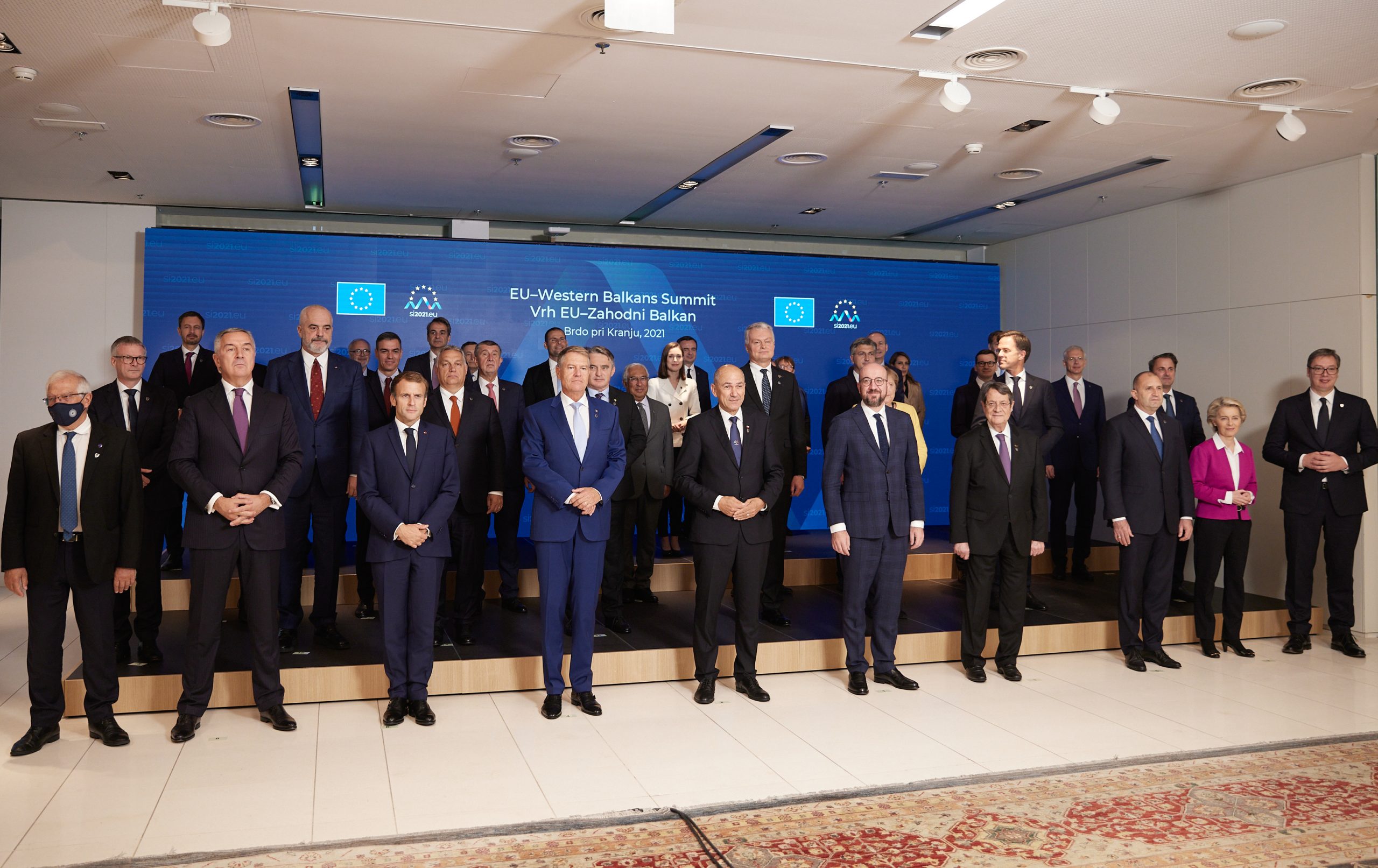At the European Union-Western Balkans Summit in Brdo pri Kranju, leaders today reaffirmed the region’s European perspective and commitment to the enlargement process, based upon credible reforms by partners, fair and rigorous conditionality and the principle of own merits. In the summit’s declaration, leaders agreed to take forward the Economic and Investment Plan, bringing concrete deliverables of the EU’s engagement in the region, and set out shared EU – Western Balkans priorities for the coming years to advance together towards more innovative, greener and digital economies. Leaders also committed to enhancing cooperation on core security issues to keep citizens safe.
The EU will step up investments in the Western Balkans to spur the long-term recovery, foster regional integration and convergence with the EU. The almost €30 billion Economic and Investment Plan (EIP) for the region proposed by the Commission exactly a year ago remains the EU’s blueprint for financial engagement in the Western Balkans aimed at closing their socioeconomic gap with the EU. It focuses on strategic investments in the region’s transport and energy networks, green and digital agenda, support to the private sector and building a Common Regional Market based on EU rules to unleash the region’s economic potential and make it more attractive to investors.
To kick-start the Plan’s implementation, the Commission has proposed to increase to €1.1 billion this year’s allocation for the Plan. €600 million of funds announced today come on top of the €500 million announced in the Summit in July under the Berlin process.
The Commission welcomes the following main results of the Brdo Summit:
- A dedicated Agenda on Innovation, Research, Education, Culture, Youth and Sport for the region, which will promote scientific excellence, reform the region’s education systems, reinforce opportunities for the youth and the cultural sector, and help prevent brain drain.
- A detailed action plan agreed by the Western Balkan partners for the implementation of the ambitious goals of the Green Agenda, focused on reducing pollution and greenhouse gas emissions, managing an energy transition, putting in place a circular economy, supporting the protections of biodiversity and advancing sustainable farming and food production.
- Endorsement of a recent rail action plan for the region.
- Preparation of a roadmap for the voluntary reduction of roaming charges between the EU and the Western Balkans, following the entry into force of the regional agreement introducing roam-like-at-home regime between the six last July.
- Agreement to enhance cooperation between the EU and Western Balkan partners on core security issues, in areas such as hybrid threats and disinformation, cyber, space issues, military mobility and counterterrorism, together with continued support for countering illicit firearms trafficking.
- Enhanced regular political dialogue with the region and the holding of EU-Western Balkans Summits as regular events.
The Summit came after over 19 months of fighting a pandemic. The EU and its Member States have stood by the Western Balkan partners, demonstrating their solidarity with an unprecedented package of €3.3 billion in financial assistance, associating the region with its emergency management mechanisms and sharing almost 3 million doses of vaccines, in addition to those received by the region from COVAX.
Background
The Summit in Brdo, hosted by the Slovenian presidency of the Council, is a testimony of the EU’s strategic engagement with the Western Balkans. It comes after the 2018 EU-Western Balkans Summit in Sofia and the 2020 EU-Western Balkans Summit in Zagreb.
President von der Leyen visited all six Western Balkans partners a week before, passing important messages of partnership and solidarity across the region, while reaffirming the Commission’s clear commitment to advance accession and towards full EU integration. The President called on all six partners to strengthen their regional cooperation and economic integration, to reap full benefits of the Economic and Investment Plan. She also had the opportunity to exchange directly with the region on the future of Europe, on issues that matter for all citizens of our continent.
Serbia and Montenegro are negotiating accession, while Albania and North Macedonia are awaiting the adoption of the negotiating frameworks by the Council, following the green light from the European Council to open negotiations with them in March 2020. Bosnia and Herzegovina and Kosovo are potential candidates. Bosnia and Herzegovina is working on the 14 priorities identified by the Commission following its application for EU membership. Kosovo continues with its political and socioeconomic reforms to progress with EU integration on the basis of the Stabilisation and Association Agreement with the EU.
Full text of the Brdo declaration of the EU-Western Balkans summit




